2021
16th May
Matthew Shiel
‘Wagner and Liszt: transcriptions of a love triangle’
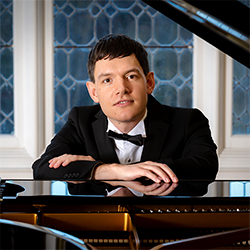
One of the most valuable tasks that the piano virtuoso Franz Liszt undertook for Richard Wagner was to transcribe his operas for piano, disseminating Wagner’s music far beyond the Bayreuth Festspielhaus to the domestic home audience. Their published correspondence strongly suggests they were madly in love; this lecture explores the nature of said love and the role Cosima Wagner (née Liszt) may have played in this unusual love triangle.
Matthew Shiel is an Honours (first class) graduate in piano, harpsichord and organ performance at the Royal Conservatoire of Scotland where he won several academic and performance prizes including the Mary and Raymond Thomson Organ Scholarship, Bach Prize for Piano, Harpsichord & Organ and Agnes Millar Prize for Outstanding Harmony & Counterpoint. After serving four years as Director of Music, Choirmaster and Organist of Fairmilehead, Church of Scotland, he was appointed lecturer in interdisciplinary improvisation at Edinburgh Napier University. Creative Scotland awarded him a bursary to study Dalcroze Eurythmics with Monica Wilkinson. He is currently associate piano teacher to Alison House, Edinburgh University alongside his private piano tuition studio in Edinburgh City Centre. Matthew Shiel will make his concerto debut this summer as solo pianist with the Abbotsford String Orchestra conducted by Derek Williams, as part of the Edinburgh Festival Fringe playing Mozart’s Piano Concerto in D minor (K.466) alongside the world première of Alfredo Caponnetto’s Baroque Concerto.
18th April
Stephen Johnson
‘Janne’s Rhine Journey’
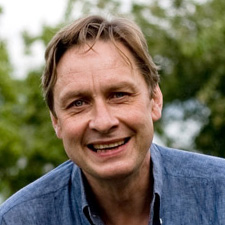 When Sibelius compared writing symphonies to following a river, was he remembering his own journey down the Rhine in 1894, just before his pilgrimage to Bayreuth? However much later commentators protested that the mature Sibelius was untouched by Wagner, the evidence is that the music left a profound and lasting impression. What Sibelius learned fromWagner – in style and in musical thinking – and how he transformed it into something utterly personal, is examined in this illustrated talk.
When Sibelius compared writing symphonies to following a river, was he remembering his own journey down the Rhine in 1894, just before his pilgrimage to Bayreuth? However much later commentators protested that the mature Sibelius was untouched by Wagner, the evidence is that the music left a profound and lasting impression. What Sibelius learned fromWagner – in style and in musical thinking – and how he transformed it into something utterly personal, is examined in this illustrated talk.
Writer, broadcaster and composer Stephen Johnson is theauthor of books on Beethoven, Bruckner, Wagner and Mahler.For 14 years he presented BBC Radio 3’s Discovering Music.
14th March
Kevin Stephens
‘Liszt and Wagner: friends, relatives, influences’
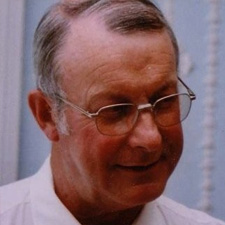 Kevin will explore the changing relationship between Liszt and Wagner, from Wagner’s initial fawning approaches to the famous Liszt, through their years of deep friendship, their falling out when Wagner and Cosima got together and their final reconciliation as Bayreuth took shape. Throughout Kevin will look at musical influences passing backwards and forwards between the two.
Kevin will explore the changing relationship between Liszt and Wagner, from Wagner’s initial fawning approaches to the famous Liszt, through their years of deep friendship, their falling out when Wagner and Cosima got together and their final reconciliation as Bayreuth took shape. Throughout Kevin will look at musical influences passing backwards and forwards between the two.
Kevin Stephen has had a portfolio career in music and opera including stints as a publisher, author, critic, festival director, administrator, consultant, lecturer and tutor on the Rose Bruford opera degree course. He spends time as a pub pianist, a season at Butlins and many appearances live on the stage of the Royal Opera House.
14th February
John Anderton
‘The Chorus in Wagner’s Operas’
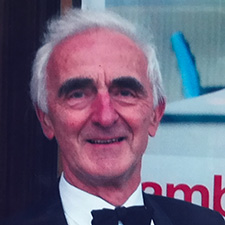 John will describe the role of the chorus in Wagner’s operas taking into account his experience in singing in the Edinburgh Festival Chorus during concert performances of Wagner’s operas in the Edinburgh International Festival. As well as being the Secretary of the Wagner Society of Scotland, John obtained a BA in Opera Studies with the Rose Bruford College/ Manchester University. His thesis for his Honours Degree was ‘The Operas of Twentieth Century Scottish Composers’.
John will describe the role of the chorus in Wagner’s operas taking into account his experience in singing in the Edinburgh Festival Chorus during concert performances of Wagner’s operas in the Edinburgh International Festival. As well as being the Secretary of the Wagner Society of Scotland, John obtained a BA in Opera Studies with the Rose Bruford College/ Manchester University. His thesis for his Honours Degree was ‘The Operas of Twentieth Century Scottish Composers’.
17th January
Derek Williams
‘Siegfried Wagner: Living in the Shadow of Paterfamilias’
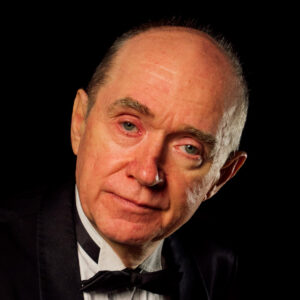 Dr Derek Williams has been Chair of the Wagner Society of Scotland since 2017. Alongside his career as a teacher of composition, orchestration and pianoforte at Edinburgh University, Derek has been self-employed variously as composer, conductor, musical director and record producer for a range of international clients including Sir Robert Helpmann, Sir Howard Morrison and Caroline O’Connor. He has been regularly commissioned as orchestrator, composer and conductor with 27 IMDb feature film credits, and 33 Discogs recording credits. This talk on Siegfried Wagner’s life as a husband and as a composer living in the shadow of his famous father will be Derek’s third talk for the Society, having previously given lectures titled Wagner and the Third Reich, and Wahnfried: ‘My Delusions Have Found Peace’.
Dr Derek Williams has been Chair of the Wagner Society of Scotland since 2017. Alongside his career as a teacher of composition, orchestration and pianoforte at Edinburgh University, Derek has been self-employed variously as composer, conductor, musical director and record producer for a range of international clients including Sir Robert Helpmann, Sir Howard Morrison and Caroline O’Connor. He has been regularly commissioned as orchestrator, composer and conductor with 27 IMDb feature film credits, and 33 Discogs recording credits. This talk on Siegfried Wagner’s life as a husband and as a composer living in the shadow of his famous father will be Derek’s third talk for the Society, having previously given lectures titled Wagner and the Third Reich, and Wahnfried: ‘My Delusions Have Found Peace’.
2020
6th December
Annual General Meeting
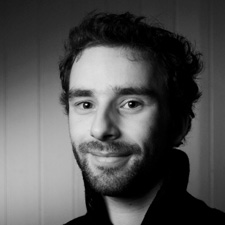 Michael Graham 2019 Stipendiat
Michael Graham 2019 Stipendiat
‘Bayreuth 2019: A Young Conductor’s Perspective’
Michael is a conductor and composer based in Edinburgh. He studied Music at the University of Edinburgh, graduating with a Bachelors degree in 2013 and a postgraduate Masters in 2015. He has studied with some of the UK’s leading conducting teachers, including Alasdair Mitchell, Sian Edwards, Gary Walker and Denise Ham.
Early in 2019, Michael was honoured to be awarded the Wagner Society of Scotland’s Bayreuth Scholarship to fund music studies in Germany in August. He has thrice received Young Conductor’s Awards from the Association of British Choral Directors and recently completed a placement with the Strathclyde University Chamber Choir through the Association’s Apprentice Conductor scheme, with mentorship from Alan Tavener. He was awarded the Ian-Pitt Watson Conducting Prize in 2013 and has also received travel bursaries from the University of Edinburgh and Early Music Forum of Scotland.
Michael enjoys a portfolio career in music and currently conducts the Bathgate Concert Orchestra, Falkirk Tryst Orchestra, Edinburgh Mandolin and Guitar Orchestra and Edinburgh Recorder Ensemble. Alongside composition and arrangement work, he regularly collaborates in chamber music projects and is active as an accompanist and church musician. He also writes as a reviewer for several music publications including the British Society of Eighteenth Century Studies.
15th November
Philip White
‘Experience with the Bayreuth Festival Chorus’
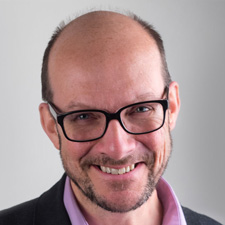 Philip White is Head of Opera at the Royal Conservatoire of Scotland, and Head of Music and Chorus Master at Grange Park Opera. Philip was Chorus Master of the Royal Danish Opera from 2004 to 2012 and for the past ten years has been Assistant Chorus Master at the Bayreuth Festival in Germany. In his talk Philip will outline his various experiences with the Bayreuth Festival Chorus.
Philip White is Head of Opera at the Royal Conservatoire of Scotland, and Head of Music and Chorus Master at Grange Park Opera. Philip was Chorus Master of the Royal Danish Opera from 2004 to 2012 and for the past ten years has been Assistant Chorus Master at the Bayreuth Festival in Germany. In his talk Philip will outline his various experiences with the Bayreuth Festival Chorus.
18th October
Jeremy Coleman
‘Richard Wagner in Paris: Translation, Identity, Modernity’
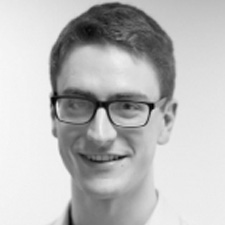
Jeremy Coleman will present an introduction to his recently published monograph Richard Wagner in Paris (The Boydell Press, 2019) which offers a different view of Wagner’s notorious relationship with Paris and French culture. The presentation will also explore wider issues around the case of Wagner and Paris including translation (both literary and operatic), foreign influences and the commodification of art.
Jeremy Coleman is currently Lecturer in the Department of Music at the University of Malta, having previously been a Teaching Fellow in Music at the University of Aberdeen. He was educated at the Aberdeen Grammar School, Clare College Cambridge and King’s College London, where he earned a PhD in Musicology. He has contributed to various publications including The Cambridge Wagner Encyclopedia, The Wagner Journal and Current Musicology, and is also active in the Aberdeen area as a pianist with particular interests in chamber music and song accompaniment.
15th March
Rolland Man
‘From Bayreuth to Babylon – Wagner Goes to Hollywood’
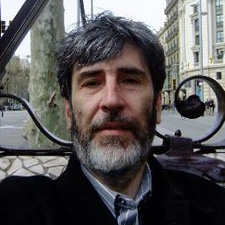 Comedies and tragedies, avant-garde and mainstream films have used some of his most famous pieces. A look at some cinematic examples and how filmmakers used his music for different purposes.
Comedies and tragedies, avant-garde and mainstream films have used some of his most famous pieces. A look at some cinematic examples and how filmmakers used his music for different purposes.
Rolland Man is a Teaching Fellow in Literature and Film Studies at The University of Edinburgh, Centre for Open Learning. He has a special interest in the interrelations of music, image and text.
16th February
Anthony Ogus
‘Staging Wagner’
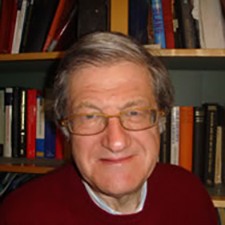 The historical evolution in the different styles and theories of staging of Wagner from Romantic Realism in the 19th century to Deconstruction in the present day.
The historical evolution in the different styles and theories of staging of Wagner from Romantic Realism in the 19th century to Deconstruction in the present day.
Professor Anthony Ogus CBE is a retired academic lawyer, an Emeritus Professor at the Universities of Manchester and Rotterdam, and a Fellow of the British Academy. He has published a book on operagoing, Travels with my Opera Glasses, and writes a monthly article in the Opera Now magazine
19th January
Katy Hamilton
‘Wagner, Paris and the origins of The Flying Dutchman’
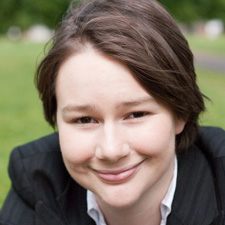 How Wagner got from a French-language opera set in Scotland, to a German-language piece about Norway; an exploration of the complex origins of this work and the German and Scottish influences that lie behind this dramatic masterpiece.
How Wagner got from a French-language opera set in Scotland, to a German-language piece about Norway; an exploration of the complex origins of this work and the German and Scottish influences that lie behind this dramatic masterpiece.
Dr. Katy Hamilton is fast becoming one of the UK’s most sought-after speakers on music, providing talks for a host of organisations including the Wigmore Hall, Southbank Centre and BBC Proms. She is the editor of two books on Brahms, and a frequent contributor to BBC Radio 3’s Record Review. You can find out more about her work at www.katyhamilton.co.uk
2019
17th November
Emma Mockett (Soprano), Mark Sandon (Piano)
Recital
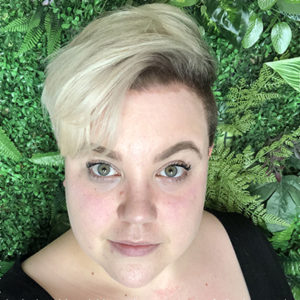 In the first half, Emma sang ‘Marietta’s Lied‘ from Korngold’s Die Tote Stadt, Berg’s ‘Die Nachtigal’, and three songs by Strauss, ‘Zueignung‘, ‘And die Nacht‘ and ‘Ich kann nicht sitzen‘ from Elektra, accompanied by Mark Sandon. The second half opened with a performance by Mark of Rubinstein’s piano arrangement of Wagner’s Siegfried Idyll. Emma ended her recital with ‘Elsa’s Dream’ from Lohengrin and ‘Dich, teure Halle’ from Tannhäuser.
In the first half, Emma sang ‘Marietta’s Lied‘ from Korngold’s Die Tote Stadt, Berg’s ‘Die Nachtigal’, and three songs by Strauss, ‘Zueignung‘, ‘And die Nacht‘ and ‘Ich kann nicht sitzen‘ from Elektra, accompanied by Mark Sandon. The second half opened with a performance by Mark of Rubinstein’s piano arrangement of Wagner’s Siegfried Idyll. Emma ended her recital with ‘Elsa’s Dream’ from Lohengrin and ‘Dich, teure Halle’ from Tannhäuser.
13th October
Anthony Negus
‘Rhythm and Silence in the Tristan and Parsifal preludes’
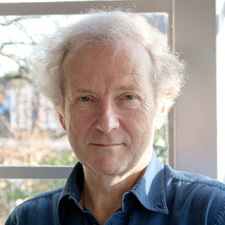 An exploration of the power and tension created by Wagner’s use of silence as a vivid part of his rhythm.
An exploration of the power and tension created by Wagner’s use of silence as a vivid part of his rhythm.
Anthony Negus played Wagner on the piano from an early age, and imbibed his works at Covent Garden, and Bayreuth in the 1960’s. In the 1970’s he was a musical assistant at Bayreuth, and in the 80’s conducted many performances for WNO, especially Parsifal. Since 2000 he has built up a reputation at Longborough for Wagner excellence, first with the small Ring cycle 2002/2004, then the full Ring 2007 – 2013, but also Tannhauser, Tristan and Der fliegende Holländer. This year marks the launch of a new Ring cycle with Das Rheingold.
2016-Present
2019
Sunday 20th January at 6.30 pm
Ian McLennan: Götterdämmerung, the beginning of the end of The Ring
Sunday 24th February at 6.30 pm (NB corrected from 17 Feb)
Dale Bilsland: The Spear in Parsifal
Sunday 17th March at 6.30 pm
Derek Hughes: Wagner and the Third Reich
Sunday 14th April at 6.30 pm
Michael Downes: Elgar’s oratorios as music dramas
Sunday 12th May at 6.30 pm
Robert Dick: The practicalities of conducting Wagner overtures
Sunday 9th June at 6.30 pm
Michael Fend: Opus metaphysicum – an empty phrase?
2018 ^
‘Not only a great, but a profoundly good man’: Paul Dawson Bowling
Sunday 11th November at 6.30 pm
David Code: Debussy and Wagner
Sunday 9th December **6.30 to 9.00pm**
AGM and Christmas Social including songs from 2016 Stipendiatin winner, Rebecca Godley
‘Wagner’s Operas as a Window on Nineteenth-Century Society’: Elaine Kelly explored what we can learn about nineteenth-century society, particularly its attitude towards women, and Wagner’s position within it from a study of his operas.
‘Performance’: Linda Esther Gray discussed how one arrives at a performance which hopefully will remain in the mind of the listener as one of quality and passion.
‘Wagner and the Third Reich’: Derek Hughes *this talk had to be cancelled owing to Derek Hughes illness, and will be presented instead in the 2019 season
‘Wagner and Nietzsche’: David Gosling returned to the podium and in his second talk for the society, united his philosophical interests and his passion for Wagner on the influence of Nietzsche, and the eventual disintegration of the close friendship that had existed between the two men.
‘My Delusions Have Found Peace’: Derek Williams recounted the political and architectural background to Wagner’s selection of Bayreuth as the new home for the building of his Festspielhaus, and the villa he named Wahnfried, for the completion of The Ring.
‘Not only a great, but a profoundly good man’: Paul Dawson-Bowling exploded many of the toxic myths polluting history’s view of Wagner’s social interactions in his own time and beyond.
‘Debussy and Wagner’: David Code explored the distinction between “après Wagner” (next in historical sequence) and “d’après Wagner” (standing on the shoulders of) in his investigation of motivic and tonal continuity crossing the fin de siècle of the 19th Century into 20th Century Modernism.
Study Weekend:
‘Das Rheingold’: David Nice (Gartmore House, Stirlingshire) – replacing the course originally scheduled to have been given by the late Derek Watson
2017 ^
‘The Coaching of Wagner Singers’: Derek Clark discussed the problems, as well as the joys, of working with singers in preparing them to perform Parsifal in 2000 and for the 2004 Ring cycle.
‘Wagner and Schopenhauer’: David Gosling provided an introduction to the elements of Schopenhauer’s philosophy that Wagner found attractive and critically examined the extent to which Schopenhauer’s ideas can be found in Wagner’s operas.
‘The Heir of Beethoven’: Kevin Stephens looked at the idea of musical development in Mozart and Beethoven to see how Wagner adapted his technique in his later works. There was a special focus on Beethoven’s Ninth Symphony, a work which Wagner knew extremely well, and its influence on his approach.
‘The Mastersingers Company Presents A Siegfried Rehearsal Workshop’: International baritone Malcolm Rivers coached three of Britain’s most exciting young singers in extracts from Siegfried:
Lee Bisset Soprano, Brünhilde
Jonathan Stoughton Tenor, Siegfried
Donald Thomson Bass, Fafner
with Kelvin Lim Piano.
Part 1 included Siegfried’s sword-forging scene from Act 1 and work on Fafner’s ‘Wer bist du, kühner Knabe?’ from Act II. In Part 2 Lee Bisset and Jonathan Stoughton performed the final half hour of the music drama from ‘Heil dir, Sonne!’ onwards. During the course of the evening the 2016 Carole Rees Award for Advanced Musical Studies were presented to Donald Thomson by members of the late Carol Rees’ family and the Winner of the 2017 Award was announced, after which there was an opportunity to meet the artists.
‘The Orchestration of Tristan And Isolde’: Derek Blyth compared the orchestral forces required for Tristan und Isolde to Der Ring des Nibelungen, Parsifal and Die Meistersinger according to Wagner’s own standards. He examined key points in the score, paying particular attention to orchestral textures and effects but also relating them to the voice(s) they support and enhance. Technical terms were explained and a sheet of relevant leitmotivs was supplied.
‘Wagner’s Place Among The Romantic Lieder Composers’: Catherine Leclerc explored phrase lengths, harmony, prolonged cadences and much more through song and explanation. She discussed the great contribution Wagner made to this genre along with his German Romantic Lieder contemporaries.
Study Weekend:
‘Richard Wagner: The Years In Exile 1849-1862’: Derek Watson (Gartmore House, Stirlingshire)
2016 ^
‘Wagner — The Critic’s Perspective’: Ken Walton examined the nature of 19th century critical reaction to Wagner’s music, setting such innovatory hallmarks as the so-called ‘Tristan Chord’ in historical perspective.
‘Wagner’s Place in the Development of the Idiom of Brass Instruments’: John Wallace discussed the nineteenth century’s great new inventions in chromatic brass instruments, which enjoyed unparalleled public popularity as instruments of entertainment and recreation, which Wagner took to early, and fused old idioms with the new mechanical means to create an entirely new sound world.
‘Wagner and the Third Reich’ Derek Williams questioned what sort of intimate conversations Richard Wagner could be expected to have had with his Jewish friends, and what sort of discourse might he have enjoyed with the likes of his great admirer, Adolf Hitler, and whether Wagner himself would have approved of the Third Reich and all it connoted.
‘Rehearing Wagner: Semiotics, Poststructuralism, and Leitmotifs’: By introducing modes of thought from twentieth century and contemporary continental philosophy (particularly Jacques Derrida, Michel Foucault and Gilles Deleuze) Matthew Sergeant offered an alternative conceptual infrastructure whereby common assumptions regarding such frameworks as a Wagnerian leitmotivic structure might be problematised and maybe even challenged.
‘Ob falsch man oder richtig singt!’: Helen Lawson discussed how we can marry dramatic intensity with vocal beauty in Wagner’s highly dramatic vocal writing, and demonstrated how the vocal teacher prepares potentially Wagnerian voices at conservatoire level for these challenges.
‘Wagner’s Shakespeare’: Patrick Carnegy showed how Shakespeare crucially shaped Wagner’s ideas for theatrical reform, his conception for music-drama, and his ideas about how it should be performed. He described how German productions of Die Meistersinger in the 1960s reasserted Wagner’s Shakespearean ancestry and thereby helped exorcise the ghosts of Nazi appropriation.
Study Weekend:
‘Richard Wagner: The Dresden Years 1843-1849’: Derek Watson (Gartmore House, Stirlingshire)
2011-2015 ^
2015 ^
Talks:
‘Hans Sachs and the Mastersingers – history and depiction’: Gordon Shiach explored the historic figure of Hans Sachs, and the development and activities of the Mastersingers in 16th century Nürnberg. He looked at Wagner’s characterisation of Sachs, and the portrayal of the Mastersingers in the opera, illustrated with excerpts from a classic performance.
‘Cutting edge or cutting teeth? Die Feen, Wagner’s first completed foray into opera’: Jane Schopf (Programme Director for Opera Studies at Rose Bruford College, Kent) reviewed Wagner’s first completed opera Die Feen, considering how prophetic it was of his later work and how indebted to its operatic forerunners.
‘Telling the Story – Costuming the Ring’: John Liddell (Costume Supervisor for Scottish Opera’s Ring Cycle between 2000 and 2003, and for earlier productions) discussed the artistic process and the practical difficulties involved in interpreting character through costume, drawing on his work with directors and designers bringing their vision to reality, by creating over 200 different costumes for 180 performers, including rubber dresses, ravens’ heads, silicone wigs, spectacles that light up, a flayed bearskin and Valkyries on stilts.
‘In Italian or English? – The first performances of Wagner’s operas in Scotland’: Iain Fraser (co-founder with his brothers Peter and Stephen of the website OperaScotland) described its origin and development and some of the discoveries they have made in relation to the early performances of Wagner’s operas in Scotland, pushing the performing history back earlier than previously assumed.
‘Wagner, the Father of modern conducting philosophy’: Chris Gray examined Wagner’s desire to place the conductor at the centre of musical performance, which started a period of development leading directly to the creation of a language and grammar for modern conductors. He looked at Wagner’s essay ‘Über das Dirigieren’ and considered his emergence as a master conductor.
‘Art as Utopia: Parsifal and the East German Left’: Elaine Kelly (Senior Lecturer in Music at the University of Edinburgh) charted the reception of Parsifal by East German opera directors in the second half of the twentieth century, examined the reasons behind the apathy towards the work in the post-war era, and explored the new resonances that the opera gained in later decades, a circumstance that reflects both the political stagnation of the late Cold War and the rise of Regieoper on East German stages.
‘Wagner, Mathilde Wesendonck, and the origins of Tristan und Isolde’: Simon Rees discussed the relationship between Wagner and the Wesendonck family, his financial dependence upon Otto, his infatuation with Mathilde, and the impact it had on his marriage to Minna after she intercepted a comprising letter. Wagner and Mathilde’s conversations on love, philosophy, and art (with Schopenhauer as a principal topic) prefigured the discussions between Isolde and Tristan in the second act of the opera.
‘Karen Cargill in conversation’: Scottish mezzo soprano Karen Cargill talked to Dale Bilsland about her operatic and musical career and answered questions from audience members afterwards. She discussed her forthcoming roles as Waltraute in Götterdämmerung with the Canadian Opera Company in 2016 and her future Wagnerian engagements with both the New York Met and Covent Garden.
‘Treading the Wagnerian road at Longborough through the Ring to Tristan und Isolde, 2000–2015’: Anthony Negus lead us through preparing and performing a reduced version of the Ring with an ensemble of 18 then 24 players, to embarking in 2007 on the full Rheingold with an enlarged pit and an orchestra of 62.
Study Weekend:
‘The Young Wagner’: Derek Watson (Gartmore House, Stirlingshire)
2014 ^
Talks:
‘Wagner’s Brass Instruments for The Ring’: Professor Arnold Myers and Dr Lisa Norman (both University of Edinburgh) described and illustrated Wagner’s special brass instruments for The Ring, with particular reference to the tenor and bass tubas but also including bass trumpet, contrabass trombone, and contrabass tuba. Several live instruments were on show.
‘From my Waistcoat Pocket’: Jonathon Brown (writer, journalist, and broadcaster) drew on his substantial record collection to pluck topics from his forty-year devotion to Wagner, including Wagner the greatest miniaturist, Wagner the greatest composer of quiet music, his secret penchant for dramas in two acts, line 11 of ‘Amfortas! — Die Wunde!’, and the smokescreen of his rude remarks about other composers. The title was based on a remark attributed to Wagner himself.
‘Tristan und Isolde and the imaginary theatre of music’: Michael Downes (Director of Music at the University of St Andrews) explored the notion that perhaps more than any of Wagner’s other dramas, Tristan und Isolde invites an interpretation that evades dramaturgical specifics in favour of a focus on the ‘pure essence’ of music. His talk laid particular emphasis on the French reception and interpretation of Wagner, both literary (Baudelaire, Champfleury, Mallarmé, Wyzewa) and musical (Debussy, Chausson, Fauré).
‘Wagner and the Dance’: Ray Furness (Professor of German at St Andrews, 1984−99) reminded us that Wagner called himself ‘the best dancer in Saxony’ and elaborated the theme that ‘if we can neither prove nor disprove the validity of this statement we can at least look at the role of Terpsichore in his thinking’. He says that he first caught the Wagner fever as a teenager when he heard the Prelude to Act Three of Lohengrin: ‘there was no going back after that.’
‘The Leitmotiv in Wagner’s music dramas’: Myra Soutar (Royal Conservatoire of Scotland) explored Wagner’s use of the Leitmotiv in his music dramas by examining the content, characteristics, manipulation, and purpose of the motives in such works as The Flying Dutchman, Lohengrin, Tristan and Isolde, and The Ring Cycle.
‘The music of Wagner’s Ring and the life cycle of an audience’: Heath Lees (Edinburgh-born Emeritus Professor of Music at the University of Auckland) showed that the music of Wagner’s Ring nurtures the growth of an audience, from their utterly simple ‘baby’ states (e.g. the opening of Das Rheingold) to the rich closing memories of aged grandparents (e.g. the panorama of themes during Brünnhilde’s final monologue in Götterdämmerung); between these extremes Wagner encourages his audience to ‘grow’ by increasing the complexity and effect of his music through ‘adolescence’ in Die Walküre and through a kind of sympathetic parenthood in Siegfried.
‘Thematic transformation in Wagner’: Kevin Stephens (festival director, arts administrator, consultant, lecturer, and author) demonstrated how Wagner manipulated musical themes, intending some of the transformations to be recognised and others to be disguised; new themes were generated from old ones, creating a web of connections across a work. Looking mainly at Holländer, Tristan, and Meistersinger, he explored Wagner’s use of shape, rhythm, and devices such as inversion and reversal to transform his themes.
Study Weekend:
Parsifal: Derek Watson (Gartmore House, Stirlingshire)
2013 ^
Talks:
The Year 1813 – an audio-visual presentation: Derek Watson
The Wagner Experience and its meaning to us: Paul Dawson-Bowling
Harry Fehr, opera director, in conversation
Wagner in Practice: Keith Warner
Study Weekend:
Die Meistersinger von Nürnberg (Gartmore House, Stirlingshire)
Other Events:
Flying Dutchman Discovery Day — an introduction to the opera, the legend, the roots, the legacy
An Evening with painter and designer Vladimír Kiseljov (Wagner Society of Brno)
Bicentenary Recital & Dinner: Anush Hovhannisyan (soprano), Artem Akopyan (piano)
An Evening with Dame Gwyneth Jones
2012 ^
Talks:
‘The Music shines through the fog’: a personal exploration of recordings and productions of Parsifal: Christopher McQuaid
Love, Lust and Passion: exploring aspects of love in Wagner’s music: Derek Blyth
The Dangers of Listening to Wagner: Dr James Kennaway (University of Durham)
The Sorcerer of Bayreuth: Barry Millington
Study Week:
Der Ring des Nibelungen (Carberry Tower, East Lothian)
Other Events:
A celebration of ‘Wagner and Prague’
Sir Georg Solti: a centenary celebration (Humphrey Burton)
‘Opera and Drama’: a discussion of Wagner’s seminal book with translator Katherine Wren
The Narrations of Gurnemanz / Wotan’s Journey: a recital by Sir John Tomlinson and Lionel Friend
2011 ^
Talks:
Liszt and Lohengrin: Dr David Trippett (University of Cambridge)
Liszt and Wagner: Dr Kenneth Hamilton (University of Birmingham)
Liszt and Scotland: Derek Watson
Why does Wotan bar Siegfried’s Way?: Lionel Friend
Wagner and Ireland: Anthony Linehan (Wagner Society of Ireland)
“So vestand ich selbst erst meinen Wotan”, or, A God in the Twilight of the Ring: Jeremy Coleman (University of Cambridge)
Study Weekend:
Lohengrin (Carberry Tower, East Lothian)
Other Events:
A celebration of ‘Wagner and Poland’
Recital by Helen Lawson (soprano) including Liszt and von Bülow
Christmas Party talk by Linda Esther Gray on Dame Eva Turner
2006-2010 ^
2010 ^
Talks:
Wagner and Berlioz — “The Enemy Brothers — Beethoven’s Bastard Offspring”: David Cairns
The Art of Max Lorenz — an audio-visual tribute to the great Heldentenor: Will Scott
Beecham and Wagner: John Lucas
Study Weekend:
Tannhäuser (Carberry Tower, East Lothian)
Other Events:
Visit to the National Library of Scotland to view Mrs Mary Burrell’s great biography of Wagner, and books by Adolf Wagner
Champagne Reception with Dame Anne Evans
An Afternoon with conductor and pianist Lionel Friend
The Quest for Reginald Goodall: a film by Humphrey Burton
Christmas Recital: Bjartmar Sigurdsson (tenor), Chris Baxter (piano)
2009 ^
Talks:
Wagner and the Revolutions of 1830 and 1848: Roderick Swanston (Imperial College, London)
Wagner and the Faeries: an introduction to Die Feen: Derek Watson
The Artistry of David Ward: Will Scott
Das Rheingold on Record: Hilary Finch
Wagner’s Mendelssohn: Dr Monika Hennemann (University of Birmingham)
“My Ideal Alberich” — Frederick Robson and the Victorian Theatre: Stewart Spencer
Study Weekend:
Der fliegende Holländer (University of Stirling)
Other Events:
Kennst Du Das Land? A Recital by postgraduate singing students from the RSAMD
2008 ^
Talks:
Siegfried’s Amnesia: an attempt at an explanation: Dr Ian Robertson
Die Walküre: a psychotherapist’s perspective: Dr Robin Hobbes
An Evening with Keith Warner
A talk by sculptor Alexander Stoddart on the influence of Schopenhauer and Wagner on his work
An Evening with Prof John Deathridge (Imperial College, University of London)
Study Weekend:
Tristan und Isolde (University of Stirling)
Other Events:
A Recital by postgraduate singing students from the Royal Scottish Academy of Music and Drama
Christmas Party with Donald Macleod (BBC Radio 3)
2007 ^
Talks:
Wagner and Mallarmé: Music and Poetic Language: Prof Heath Lees (University of Auckland)
Wagner and Weimar: Derek Watson
Wagner and Elgar: Ian Beresford Gleaves
Richard Wagner’s Zurich: Prof Chris Walton (University of Pretoria)
Study Weekend:
Rienzi (Carberry Tower)
2006 ^
Talks:
Wagner and Houston Stewart Chamberlain: Dr Roger Allen (University of Oxford)
Nietzsche’s Ideas of History and the Ring: Prof Simon Williams (University of California, Santa Barbara)
Richard Strauss and Wagner: Michael Kennedy
Richard Wagner and the ‘Satire of Art’: Scottish Wagnerism, George Bernard Shaw, and the Religon/Science Dialectic: Gulliver Ralston
Study Weekend:
Lohengrin (Carberry Tower)
Other Events:
Wagner and Venice: an audio-visual presentation: Derek Watson
2001-2005 ^
2005 ^
Talks:
Wagner and Brass: John Wallace (Principal, Royal Scottish Academy of Music & Drama)
The Fateful potion in Tristan: Aphrodisiac or Placebo: Dr Ian Robertson
Richard Wagner and his Native City of Leipzig: Derek Watson
‘The Voice Doctor’: Prof Arnold Maran FRCS
Study Weekend:
Die Meistersinger von Nürnberg (The College, Isle of Cumbrae)
Recital:
Shuna Scott-Sendall (soprano), Wai Sum Chong (piano) [Debussy, Wagner, Gershwin]
Other events:
An Evening with Sir Donald McIntyre [including a performance of the two Wotan/Erda scenes from the Ring with Phillida Banister as Erda]
Richard Wagner and the Dresden Semperoper: an audio-visual presentation
Jane Eaglen in Conversation
2004 ^
Talks:
Schopenhauer and Wagner: Dr Kenneth Hutton
Wagner, Schoenberg and the Dissolution of Tonality: Dr Ian Robertson
What Tristan means to us: Prof Roger Scruton
Wagner and the Greeks: Lewis Morgan-Klein
Mathilde Wesendonck: the Controlling Muse: Professor Chris Walton (University of Pretoria)
The Ring at Manaus: Aidan Lang
Study Weekend:
Die Feen and Das Liebesverbot (University of Stirling)
Other events:
Scottish Opera: Past Present and Future: Christopher Barron, Chief Executive. Scottish Opera
Christmas Party talk ‘Early Bayreuth Singers’ by Sandy Matheson (McAlister Matheson Music)
Recital:
Phillida Bannister (mezzo-soprano), Derek Watson (piano) [Schubert, Strauss, Wagner]
2003 ^
Talks:
Tonality in the Ring: Derek Watson
Structural Parallels between Das Rheingold and Götterdämmerung: Graeme Arnott
Six talks by members of the Scottish Opera Ring company: Piers Maxim, Peter Sidhom, Graham Sanders, Elizabeth Byrne, Peter Savidge, Alasdair Eliot
Other events:
Festival Receptions for International Wagner Societies during Scottish Opera’s Ring cycles
Christmas Party with Pauline Tinsley
Recital to celebrate Ronald Stevenson’s 75th Birthday Jonathan Scott (organ), Phillida Bannister (contralto) and Christopher Ovenden (tenor)
Study Weekend:
Götterdämmerung (University of Stirling)
2002 ^
Talks:
Fifty Years of Bayreuth Festivals: Penelope Turing
Voicing Mathilde: Money and the Muse: Prof Chris Walton (University of Pretoria)
Hans Sachs – the problem of the final address: Dr Ian Robertson
Study Weekend:
Siegfried (Newbattle Abbey)
Other Events:
An Evening with Matthew Best
Christmas Party with Tim Alberry and Hildegard Bechtler
2001 ^
Talks:
Wagner, Coins and History: Nick Holmes (National Museums of Scotland)
Samuel Beckett and Wagner: John Calder
‘Das ist kein Mann!’: problems with virility in Siegfried: Barry Millington
Study Course:
Tonality in Act 1 of Die Walküre: Ian Beresford Gleaves
Other Events:
An Evening with Raimund Herincx
A Conversation with Donald Runnicles
Christmas Party with Linda Esther Gray
1996-2000 ^
2000 ^
Talks:
Conducting Wagner: Sir Richard Armstrong
The Divided Soul: Dr John Warrack
Wagner and Film: Graeme Arnott
Wagner and Philosophy: Brian Magee
Study Courses:
Parsifal (Newbattle Abbey)
Das Rheingold (Newbattle Abbey)
1999 ^
Talks:
Wagner and Mallarmé: Dr Mary Breatnach (University of Edinbugh)
Wagner and Delius: Derek Watson
Wagner and Bruckner: Stephen Johnson
Wagner and Scriabin: Dr Rosamund Bartlett (University of Manchester)
Study Weekend:
Die Walküre (Newbattle Abbey)
Christmas Party:
Talk by Sir Brian McMaster CBE
1998 ^
Recital:
Linda Finnie (mezzo-soprano)
Talks:
Wagner in Russia: Dr Rosamund Bartlett (University of Manchester)
Wolfgang Wagner’s Bayreuth: Penelope Turing
Wagner and Redemption: Dr Michael Tanner (University of Cambridge)
Study Weekend:
Das Rheingold (Newbattle Abbey)
Other Events:
‘Tristan’ Congress (Theatre Royal, Glasgow)
Tony Palmer introducing his film Parsifal
Christmas Party with Gian Carlo Menotti
1997 ^
Talks:
Lohengrin: Alexander Crowe (Royal Northern College of Music)
The Staging of Die Meistersinger: Patrick Carnegy
The Geography of the Ring: Malcolm Fox (University of Adelaide)
Study Weekends:
Tannhäuser (College of Education, Dundee)
Lohengrin (Newbattle Abbey)
Other Events:
An Afternoon with Mike Ashman (director of the Norwegian National Opera Ring)
Piano recital by Colin Kingsley
Christmas Party with James MacMillan
1996 ^
Study Day:
Wagner’s Version of Iphigenie in Aulis
Study Weekends:
Rienzi (Newbattle Abbey)
Der fliegende Holländer (Newbattle Abbey)
Talks:
Images of Wagner in the Third Reich: Dr Erik Levi (University of London)
Love in Wagner: Dr Michael Tanner (University of Cambridge)
Exploring the lesser-known Wagner: Barry Millington
1991-1995 ^
1995 ^
Recital:
Kenneth Hamilton (piano)
Study Weekend:
Parsifal (University of Stirling)
Talks:
On Singing and Interpretation: John Mitchinson
Wagner and Russia: Dr Stuart Campbell (University of Glasgow)
1994 ^
Talks:
Wagner and Pfitzner: Dr John Williamson (University of Liverpool)
The Music of Siegfried Wagner: Will Scott
Study Weekend:
The Music of Tristan (Scottish Opera, Glasgow)
Study Day:
Das Liebesverbot
An Afternoon with Anne Evans and Jeffrey Lawton
1993 ^
Talk:
Hans Richter Christopher Fifield
Study Days:
Tristan und Isolde; Lohengrin
1992 ^
Recital:
Margaret Archibald (soprano)
Study Weekend:
Die Meistersinger von Nürnberg (Newbattle Abbey)
Talks:
Wagner and the Italian Opera: Prof David Kimbell (University of Edinburgh)
Wotan’s Spear: Malcolm Fox (University of Adelaide)
1991 ^
Recital:
Barbara Brodie (soprano)
Study Weekend:
Götterdämmerung
1990 ^
Recitals:
Denise Mulholland (soprano), Derek Archer (baritone)
An Evening with Pauline Tinsley
Study Weekend:
Siegfried (University of Stirling)
Talks:
Wagner and Liszt: the Transcriptions: Dr Kenneth Hamilton (University of Birmingham)
Elgar and Wagner: Prof Ian Parrott (University of Aberystwyth)
Ludwig, a Royal Mystery: Trevor Ransley
1984-1990 ^
1989 ^
Recitals:
Annabelle Cheetham (mezzo-soprano)
An Evening with Alberto Remedios
Talks:
Puccini the Wagnerian: Rodney Milnes
The Shakespearian Wagner: Margaret Inwood
1988 ^
Talks:
Berlioz, Liszt and Wagner: reappraisals of the ‘New German School’: Derek Watson
Wagner and Conducting: Neil Mackay
Study Weekend:
Die Walküre (University of St Andrews)
1987 ^
Study Weekend:
Das Rheingold (Whithorn, Galloway)
Study Day:
Der fliegende Holländer, with director John Cox
Recital:
Suzanne McLaren (soprano)
Talks:
The Origins of ‘The Flying Dutchman’: Prof Anthony Stanforth (University of Edinburgh)
Wagner as Music: Bryan Magee
Wagner and British Music: Malcolm MacDonald
1986 ^
Liszt Centenary Recital:
Sally Scott-Jupp (soprano), Ronald Stevenson (piano)
Talks:
Wagner’s Politics and Wagner’s Music: Dr Anthony Arblaster (University of Sheffield)
Wagner Literature and Wagner Research: Dr John Deathridge (University of Cambridge)
1985 ^
Talks:
The Operas of Benjamin Britten: Sir Peter Pears
Singers of Bayreuth: Norman White
Wagnerism in France: Prof Hugh MacDonald (University of Glasgow)
1984 ^
Recital:
Kathryn Harries (soprano), Michael Pollock (piano)